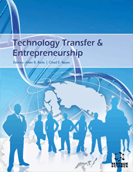Abstract
Understanding faculty culture is critical to understanding how economic development fits into a faculty members’ and a university’s agenda. This manuscript provides a snapshot of the concepts of economic development, technology transfer, and innovation as a framework to the subsequent case study. This manuscript will 1) define faculty culture; 2) explore the role of economic development in higher education; 3) discuss the importance of technology transfer, commercialization, entrepreneurship and industry-university partnerships; 4) examine the actions taken by West Virginia University to encourage an innovative culture; and 5) identify six lessons learned on how to move forward in the higher education domain of changing paradigms. More specifically, this manuscript explores West Virginia University’s program, LIINC (Linking Innovation, Industry and Commercialization), which is designed to build a bridge between faculty researchers, graduate students and private sector representatives in the areas of energy and environmental research, bioscience and biomedical research, and security and intelligence research.
Keywords: Campus culture, commercialization, economic development, entrepreneurship, higher education, innovation, technology transfer, West Virginia University.
 18
18

